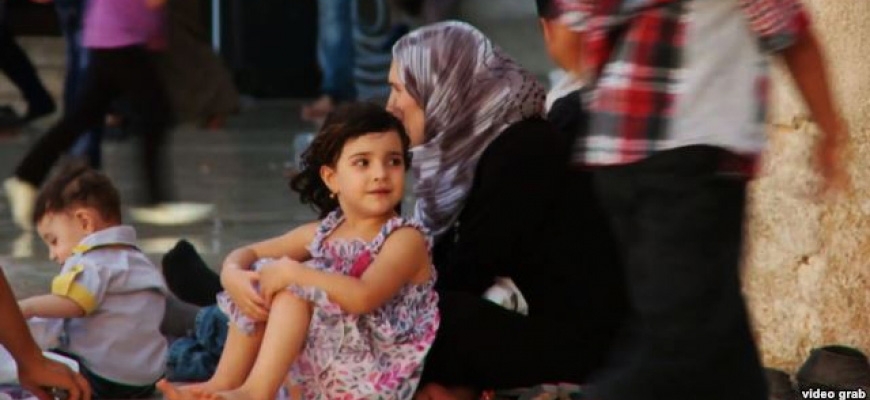
19 Mar 2015
round 200 Syrian Assyrian Christians remain in captivity in northeastern Syria, after Islamic State (IS) militants abducted them in February, a Britain-based monitoring group said on March 18. The Syrian Observatory for Human Rights (SOHR), which tracks the Syrian conflict, said it fears for the lives of the 200 captives. Islamic State gunmen kidnapped 220 Assyrian Christian men, women, and children from villages on the southern bank of the Khabur River, near the town of Tal Tamer in Hasaka Province in February. The militants released 16 men and three women on March 1, with some reports saying that Islamic State (IS) militants handed over the 19 Assyrians in exchange for a sum of money. On March 4, SOHR reported that the number of Assyrians released had risen to 24, after an Assyrian commander told the group that the gunmen had set free five more captives including a man and his child from Tal Shamira and a woman and child from Tal Koran. According to SOHR, Arab tribal leaders are working privately to secure the release of the remaining captives. Assyrians ‘Fear Extinction’ The storming by IS militants of Assyrian Christian villages in northeast Syria and the kidnapping of around 220 Assyrians caused thousands of Christians to flee their communities. Karam Dola, a member of the Assyrian Democratic Organization in Hasakah Province told RFE/RL’s Radio Free Iraq reporter Manar Abdulrazzaq on February 24 that militants had overran rural villages populated by Assyrian Christians at dawn on February 23. The Syrian Assyrian community could face a mass killing, he warned. In the wake of the IS attacks, Assyrian Christian refugees are still streaming into Lebanon, but are too fearful to speak out about their situation, Lebanon’s Daily Star reported on March 18. The refugees have also been told by their church not to speak to the media about relatives still held by the Islamic State group. Around 75 Assyrian families have sought refuge in Lebanon since the February 23 attacks, according to Yatron Koliana, the Archbishop of the Assyrian Church of the East. Koliana told the Daily Star that at least three of the Assyrians who have come to Lebanon were among those captured and released by Islamic State gunmen. Those refugees will not talk, because “although they were released, their sons, brothers, or parents are still in captivity,” Koliana said. While the Assyrian refugees in Lebanon whose relatives are still held by militants are keeping silent about their plight, other Syrian and Iraqi Christians in Lebanon called on the international community on March 17 to provide more assistance. The Christian refugees made their appeal from two Beirut churches where they had gone to receive humanitarian assistance. “We used to live like kings in our land, our sons had free education; we had everything. Look at me now,” one refugee woman from the Assyrian town of Tel Nasri in northeastern Syria told the Associated Press on condition of anonymity. The woman said she had fled to Lebanon last week with her two children, asking her husband to stay behind to guard the family’s home. Assyrian Christians in the United States have also called on the United Nations and the international community to do more to protect ethnic and religious minorities in Syria and Iraq. The American Mesopotamian Organization and the Middle East Christian Committee submitted a memorandum on March 13 to UN Secretary-General Ban Ki-moon, calling for the establishment of interim protected zones for Assyrians, Yazidis, and other minorities in Iraq and Syria.

 عربي
عربي